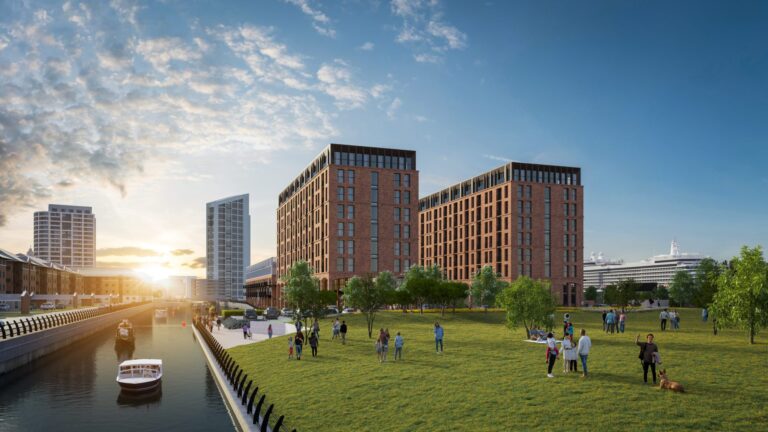The global response to climate change is having an impact on all industries, and the property market is no exception. Getting the balance between sustainability and marketability is key.
It is estimated that 40% of the UK’s carbon is emitted by households. So, it is no wonder the government has chosen the property market as a key target for regulation in matching their net-zero by 2050 target.
There is currently a Bill under discussion which could mean that, come April 2025, any property being let to new tenants will need to have an energy performance certificate (EPC) rating of C or higher. There could be fines of up to £30,000 if a property does not comply.
If this becomes law, landlords will need to act. It is estimated that three in five (58%) homes across the UK have an EPC rating of D or lower – that is 12.6 million properties. Clearly, investment will be needed nationwide to improve the energy efficiency and sustainability of residential properties.
However, we should not treat these renovations as a legal obligation. Firstly, they are an important step to lower carbon emissions and to combat climate change. Secondly, for landlords and homeowners alike, it is an opportunity to increase profitability and marketability.
With favourable ‘green’ mortgage rates and a greater focus on energy efficiency among both renters and buyers, landlords can do better to match public demand for sustainable housing.
Demand for sustainability
From unusually strong storms to international climate summits, recent events have highlighted the importance of making more environmentally friendly decisions to a greater extent than ever before. Compounded by soaring energy bills, the attraction of energy efficient homes to the public is likely to increase further.
In fact, a recent survey found that 42% of renters consider the environmental impact of a property before renting, while 82% of buyers said they would be willing to pay more for an energy-efficient property.
These are encouraging numbers for landlords who might see it as a daunting task to improve a property’s energy efficiency. But, with a carefully planned timeframe and source of finance, landlords can spread the cost of refurbishment over the next few years, easing the impact of renovations on their purse strings. So, what should landlords prioritise?
Electricity usage
Improving the electricity usage of a building is a good place to start, especially when it comes to lighting and boilers.
Simply switching from old, inefficient lightbulbs to Energy Star rated LED bulbs can lead to a 75% reduction in energy consumption and will last for 25 times as long. On the boiler front, new condensing boilers increase efficiency by around 34% compared to old ones and can reduce fuel bills by 30%.
As old boilers are phased out, the cost of repairs and parts will likely rise, making older boilers quite a costly asset for the future. Making these simple changes will reduce energy bills for tenants, as well as lowering any cost of general maintenance that might fall under the landlord’s remit.
As 15% of renters say they would pay more rent if an efficient boiler and heating system was installed in their homes, these changes can allow landlords to charge more rent, increasing the property’s profitability alongside its sustainability.
Improving insulation
This is perhaps a more pertinent renovation for landlords and is likely to cost a little more. However, a well-insulated property will limit the usage of a boiler or heating system in the first place, further cutting costs for tenants and increasing their spending power on rent.
For example, insulating just the walls alone can reduce the amount of energy needed to heat or cool a property by around 25%, with this number rising when windows are also fitted with more efficient fittings. In turn, this can also reduce maintenance costs, as the property will be less vulnerable to mould.
Indeed, 18% of renters say they would pay more rent if new windows were installed, and it is estimated that homes with energy-efficient features sell with a £40,000 premium. As such, improving the insulation of a property can increase profit when both letting or selling – a win-win situation.
Positively, in his recent Spring Statement, the Chancellor Rishi Sunak confirmed that the government was reducing VAT on energy-saving materials — such as solar panels, heat pumps and roof insulation — from 5% to zero, over the next five years.
Finance options
Despite this, the Association of Residential Letting Agents believes that the cost of renovations in line with new regulations may not be realistic, and could price many landlords out of the market.
Known as ‘eco-privilege’, the proliferation of ‘green’ finance with favourable mortgage rates could mean that investors and homebuyers who cannot afford to make costly renovations will be left with worse finance options. As such, an already difficult affordability crisis could start to get a lot worse.
The bridging sector is uniquely placed to limit the effects of ‘eco-privilege’. Whether a landlord needs to renovate a property bought at auction before applying for a mortgage, or simply needs to borrow capital on top of existing finance, bridging loans can bridge the gap between the start of a renovation project and the sourcing of a ‘green’ mortgage. As such, a wider range of landlords will be empowered to invest in sustainable features and access favourable mortgage rates.
In the years to come, landlords should carefully consider their financial options and produce a timeframe for making the necessary renovations to improve the sustainability credentials of their properties. It is clear that those who do so successfully will be ready for further regulation in the future and can expect to increase the marketability of their property.
Paresh Raja is the founder and CEO of Market Financial Solutions (MFS), a London-based specialist lender that provides bridging loans and buy-to-let mortgages. Prior to establishing MFS in 2006, Paresh worked as a senior professional consultant in one of the top five management consultancy firms, and also set up an independent investment group.









